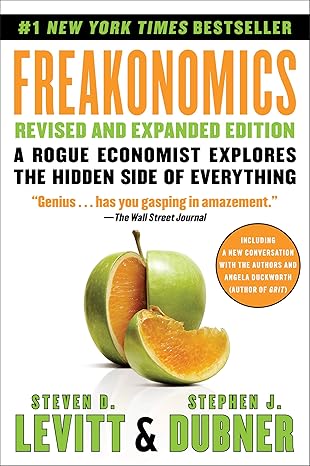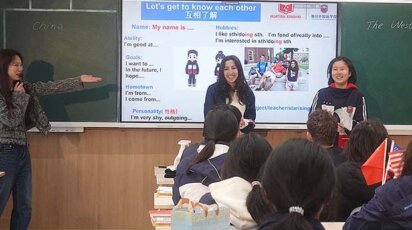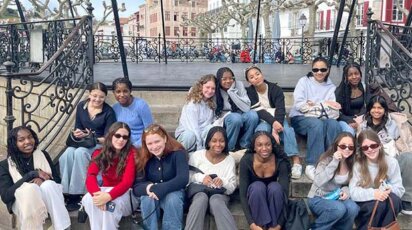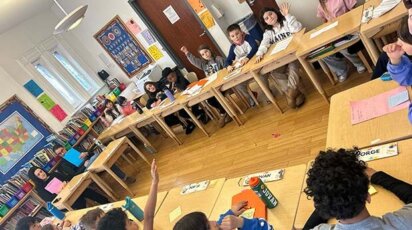News
A Look Inside Poly Upper School: Microeconomics with Caitlin Hart-Loi
“Morality, it could be argued, represents the way that people would like the world to work — whereas economics represents how it actually does work. Economics is above all a science of measurement. It comprises an extraordinarily powerful and flexible set of tools that can reliably assess a thicket of information to determine the effect of any one factor, or even the whole effect.” — Freakonomics: Revised and Expanded Edition, Steven Levitt and Stephen Dubner
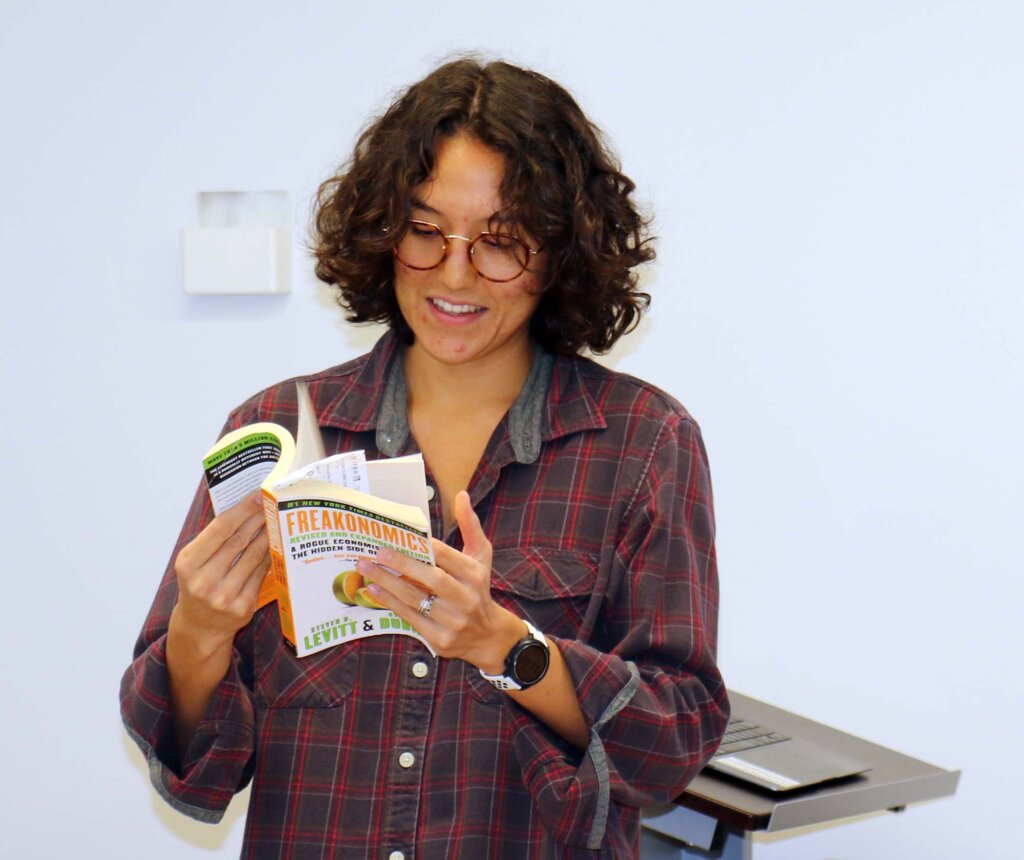
In Mathematics faculty Caitlin Hart-Loi’s Advanced Microeconomics, Grade 12 students review foundational microeconomic principles and engage in deep discussions of microeconomic research and thought. Topics that may be explored in the course are assortative mating and income inequality, the effects of neighborhoods on intergenerational mobility, personal finance, organ donation, and climate change.
Economics is a social science and provides context for students to understand the world, Hart-Loi shares. She is preparing students for college classes through a course design that encompasses rigorous study, critical thinking skill-building, and the most up-to-date materials. Microeconomics, she explains, is “about more than just money, finances, and supply and demand.”
Microeconomics Gets Students Fired Up
On November 12, Hart-Loi led students through an activity based on the book Freakonomics: Revised and Expanded Edition by popular podcasters Steven Levitt and Stephen Dubner, which improves students’ critical thinking skills and provides topics for students to engage in argumentation. The activity occupied class time in an exciting culmination of group work, peer and whole class discussion, and movement, as students used different parts of the room and the white boards on all four walls of the classroom to write down their ideas. The novel-based activity challenged students’ biases and preconceptions about parenting choices and its correlation to their child/ren’s test scores. Hart-Loi shared that the activity gets students fired up, in passionate debates with one another and “challenges their ‘what feels right’ instincts.”
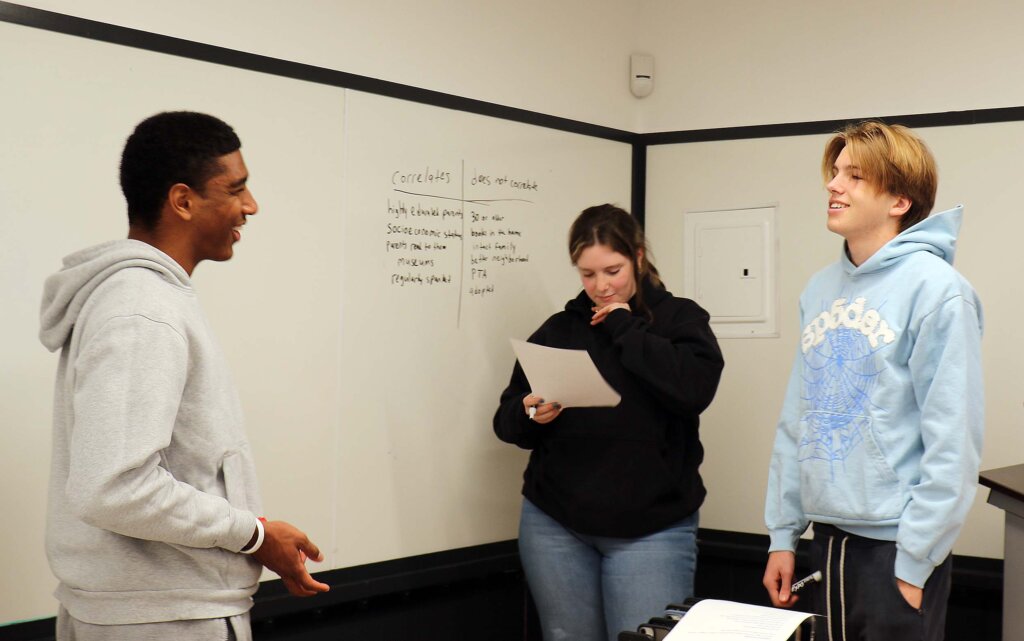
On the surface, all the statements in the activity seem to correlate “because of conventional wisdom” and widely-accepted beliefs as absolute. A few of the 16 statements included:
- “The child has highly educated parents.”
- “The child’s family is intact.”
- “The child’s parents have high socioeconomic status.”
- “The child’s parents read to them nearly every day.”
In randomized groups, students then organized the statements into two categories, one that correlates with test scores and the second that doesn’t correlate with test scores. The goal of the exercise is to challenge what students believe to be true and demonstrate that conventional wisdom is not always correct. Once the group work was completed, the class then came back together to vote on each statement and discuss the findings. The findings revealed that factors like parents’ educational history, socioeconomic status, adoption status, and birth weight (a typically overlooked factor) correlated, while the relationship status of the parents, whether the mother worked during the child’s early childhood years, and whether the child was regularly spanked did not.
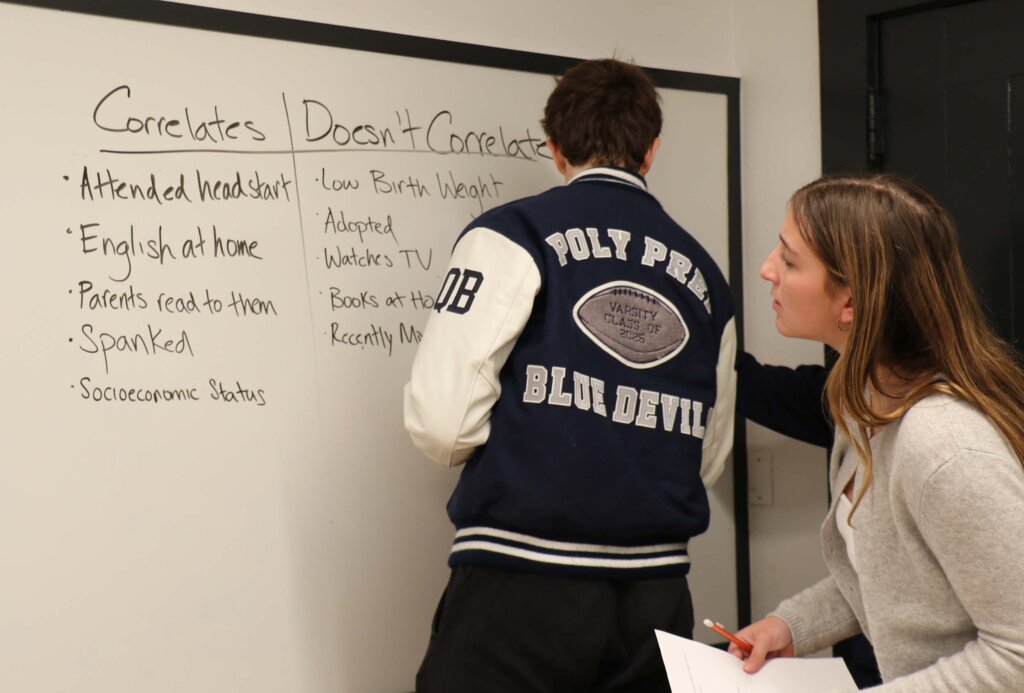
Challenging Preconceived Notions
“I think the value of this activity is that it allows students to challenge their preconceived notions and why they need to interrogate what they’re told are ‘facts,” Hart-Loi reflected. “When I did this activity last year no one sorted the factors perfectly and it created a wonderful class discussion. One of my goals for the course is to show students how the tools of economics can be applied to other subjects, which Freakonomics is great for.” She added that the course as a whole offers students a look into what a college class might experience as her class is modeled after her economics studies at Bowdoin College. “Broadly, I try to prepare students for college-level courses by teaching them how to closely and efficiently read academic articles, discuss knowledgeably in class about readings, and write article summary papers.”
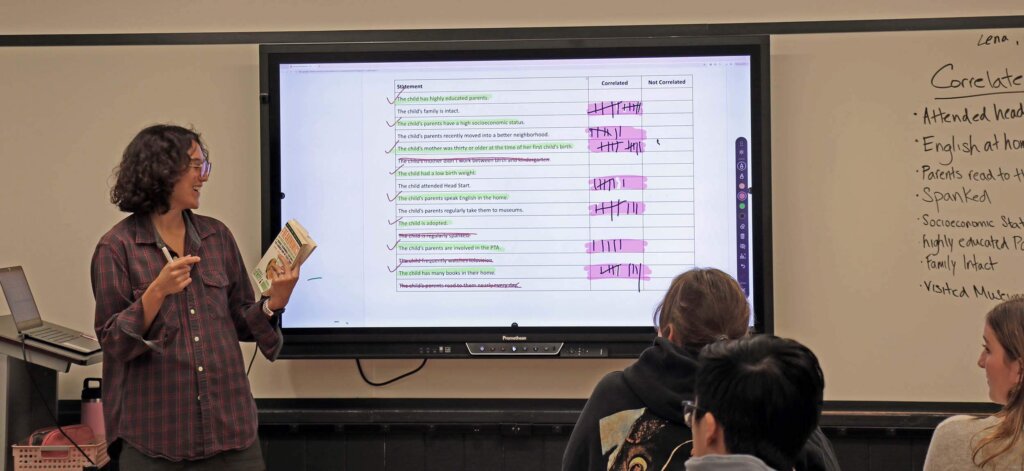
Students have a lot to look forward to in the remaining classes of the fall semester. Topics will vary but include contemporary issues, such as medical marijuana laws, deaths related to painkillers/opioids, the effect of football season on American labor supply, and more. The course will also explore exciting, multimedia learning materials such as podcasts, academic papers, and even, a novel written by a Nobel Prize winner.

